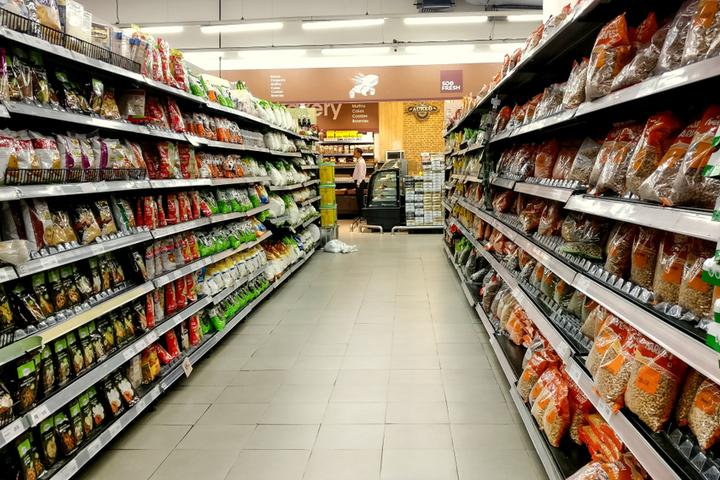The supply chains today are far more complex as compared to what they were a decade ago. The COVID-19 pandemic has not only hampered the production facilities, but has also disrupted the supply chains globally. In order to formulate corporate strategies, organizations are required to comprehend their direct supply chains and also inherit risks which they may get exposed to at their supplier and customer level. This phenomenon is regarded as the nature of every economy.
The implications of coronavirus outspread on the supply chains is already quite evident. The pandemic has compelled consumers to radically change their purchase behaviours which has led to hoarding and stock piling of daily essentials and heath & wellness products. This behaviour has subsequently affected the grocery aisles holding non perishable goods, including FMCG products.
Retailers in the U.S. have acknowledged the COVID-19 implications on supply chain, apart from sourcing and manufacturing in china. Approximately, 20% of the supply chain retailers in the U.S. are exposed to China. Albeit things coming back online in China, they still have shortage of labour which is affecting the cargo movement and hence cross border trade. Moreover, the U.S. trade war, increasing labour costs, and growth in number of manufactures producing for their own market in China, were some factors previously motivating U.S. retailers to move away from the market. Similar to a trade war scenario, the pandemic could lead to acceleration of more diversified supply chains by the U.S., rather than solely/largely relying on China.
Most of the U.S. companies, are facing doubled lead times and the shortage is caused due to lack of air and water freight options in order to move the goods to United States, despite of filled orders. This is an added supply chain disruption faced in the U.S.
The lockdown scenario in India has interrupted the operations of FMCG distributors. Since the lockdown, there has been an enormous shortage of labour and manpower. Regardless of the goods being manufactured and stocked in warehouses, the distributors are however unable to further supply them to the final retailers. There are several reasons causing this interruption, including police obstruction and manpower shortage. Consequently, the grocery and supermarket retailers are staring to face shortage of essential FMCG products. Nevertheless, the government has now stepped in with assistance of technology to promote linkage between suppliers and delivery partners.
European countries are facing a harsh time with maximum affected and death cases due to the COVID -19 pandemic. Countries such as Italy, Spain, France and Germany facing lockdown for weeks have certainly affected the supply chain of multiple businesses. The grocery store shelves have been wiped-off of their daily essentials, health & wellness and FMCG products. This presents potentially costly challenges for several supply chain leaders. Major swings in the inventory due to panic buying further reflect the upward stream of the supply chain. Manufacturers are left overwhelmed with unanticipated glitches in demand, distributors are in a complex state while determining the distribution during shortage and subsequently retailers lose potential sales.
Post Covid-19 World of FMCG Supply Chain
The COVID-19 pandemic is regarded as a black swan event, owing to which the expenditures on marketing activities have become short-term and unpredictable. The lockdown across majority countries is anticipated to increase digital viewing since people have started to spend much of their indoor time on digital gadgets. In this occasion, advertisers consider it imperative to stay in close connection with consumers. Hence, with the absence of social contact, building trust has become far more essential as compared to short-term sales.
E-commerce sales especially for daily essentials will serve as a boon for online business. In such scenarios, consumers tend to only satisfy their needs rather than desires, owing to the uncertainty of the situation. Categories which involve social contact such as restaurants, tourism, retail, cinema and others, will bear the extreme direct consequences of the pandemic. In terms of FMCG, the supply chain merchants are the ones to look out for. This is because most of the financial institutions will hold back on distribution of retail loans. Which will most likely cause undesirable impact on sales of durables.
Fast moving consumer goods giants including Nestle, P&G, Dabur and Jyothy Laboratories, HUL, Godrej have either reduced or suspended production altogether after the government’s lockdown orders. Certain brands will however continue production of essential food items, hand sanitizers and hand wash. Currently, there is a huge spike in demand for essentials, however immense supply-chain issues. In such a scenario, it wouldn’t be hard to anticipate disruptions in the supply chain as an impact of lowered production.
In addition, there is an issue of lack of even distribution among retailers alongside consumer’s panic buying behaviour in the current situation. This is also likely to further deplete the finished goods pipeline. Although, the bigger problem for the FMCG giants is caused by lack of clarity in COVID-19 guidelines presented by the government. On one hand, the production of essential good is permitted, on the other hand, complete lockdown has caused shortage of manpower, hence leading to reduced production. Companies such as Amul and HUL are making every effort to ensure that their products are manufactured and bought to the market in an uninterrupted manner.
In terms of certain small-scale and local brands, the priority however seems to be a little different. There is a wide array of fake and duplicate products available in the market for short-term profitability. Several e-commerce platforms such as Amazon and Flipkart have stopped third party merchants to market products which claim to cure coronavirus.












No Comments